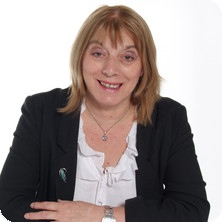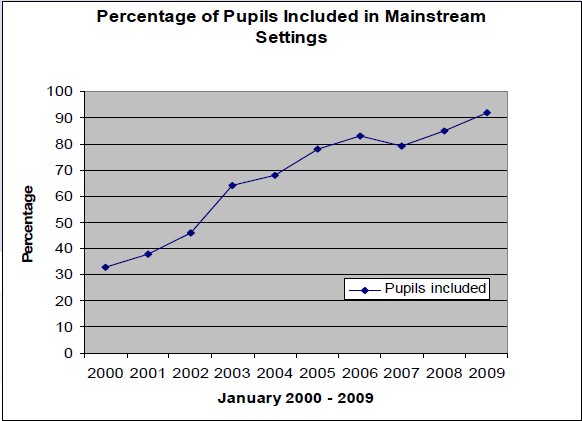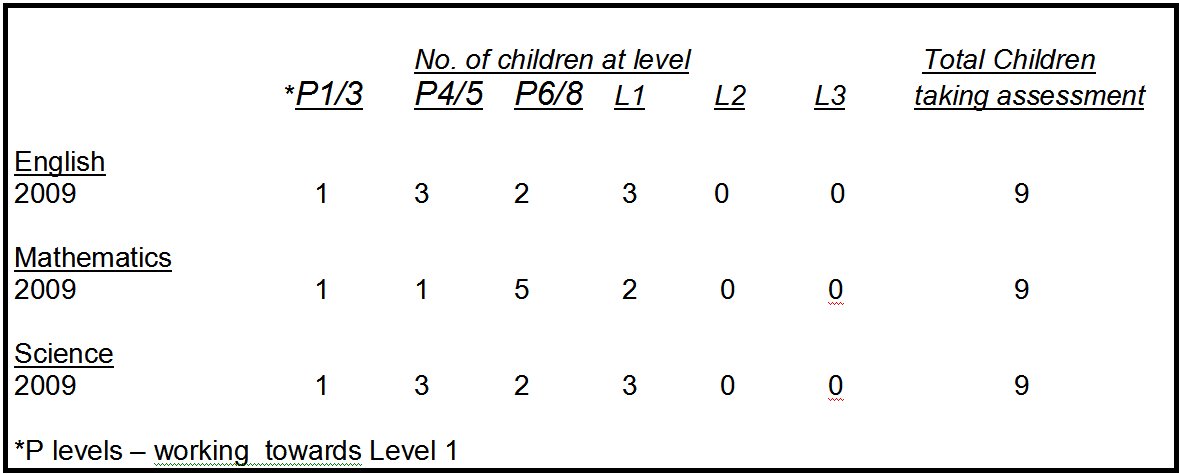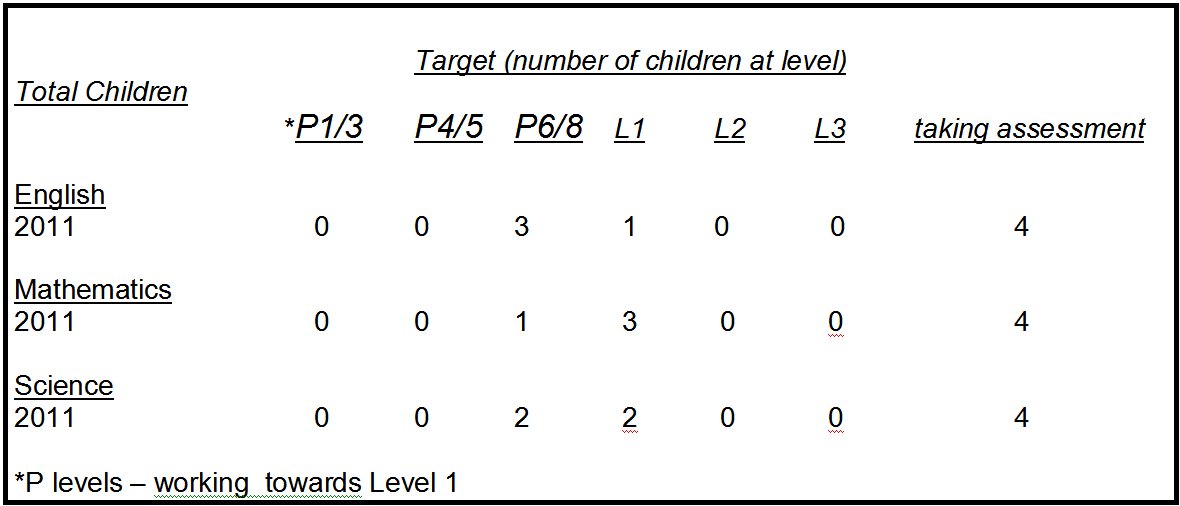Vranch House is a centre for the treatment of over 2,000 outpatients with physical difficulties, a provider of various therapies throughout Devon and an independent Day School in Exeter for children with significant physical difficulties.
Find out more...Last updated: 26/07/2024
Headteachers Report 2009

Maureen Boon - Headteacher in 2009
Academic Year: September 2008 to July 2009
1) What have been our successes this year?
- In May 2009 we were judged as providing an outstanding quality of education for the second time by Ofsted.
- The new Learning Resource Centre is now fully operational and a great asset to the school with its suite of computers with wall mounted adjustable access and extra large touch screen computer. New switches and roller balls have also helped to make the LRC fully accessible for all pupils.
- We have continued training for mainstream teachers and TAs in association with Devon LA by running 5 day annual training courses and moving and handling courses.
- Our inclusion service continues to develop and become a focal point within the school (see Chart - Inclusion).
- The ongoing speech and language training in Makaton and communication skills for all staff continues including a piloted Signing Competencies project. Speech and language training continues to be given to parents.
- The school council continues to holds regular meetings and has raised £88.03 for the Leonard Cheshire Foundation through organising various events. It has made important contributions to policy developments, curriculum and the Every Child Matters agenda. The school also raised £39.15 for Comic Relief.
- The Family Network continues to support parents and families and sends out newsletters and arranges meetings and talks.
- The school continues as a TLA School following leadership and assessor training for designated teaching staff and submission of Stage 1 and 2 assessments.
- Over the last year we have developed more interactive staff meetings with wider representation which has included a changing chair and minuting secretary. This has provided valuable opportunities for staff to increase their skills of chairing and minuting meetings.
Chart - Inclusion
Ninety-two percent of pupils were included in mainstream schools on shared placements in January
2009.

2) What are we trying to improve?
Whole School Priorities for 2009 - 2010
- Review thematic approach to curriculum development including a review of long and medium term planning.
- Develop a whole school approach to phonics.
- Develop a whole school approach to numeracy.
- Develop planning and communication between therapy and education departments.
- Improve regular communication between Vranch House, children's families and partner schools through exchange of planning and use of diaries.
- Review safeguarding policies and procedures.
3) How much progress do pupils make?
Pupils at Vranch House School make good progress when their baseline achievements are taken into account. The following section describes the results for Foundation, Key Stage 1 and 2 assessment during 2008/9. The results are compared to targets set two years ago.
Foundation Stage Assessment
The results of the Foundation Stage Assessment show a broad range of abilities this is demonstrated by the results for the four children assessed in 2009.
In the national data for 2008 the majority of children are shown to be working securely within the early learning goals for all assessment areas - 6 points or more. As can be seen all of the four Vranch House pupils were working securely towards an early learning goal in some of the areas below whilst in other areas working below the early learning goals (scores of 3 or less). This reflects the intake at the school with pupils working at a range of levels from developmental to within the normal range in some assessment areas.

Key: PSED (Personal Social and Emotional Development), DA - (Dispositions and Attitudes), SD - (Social Development), ED - (Emotional Development), CLL (Communication Language and Literacy), LCT - (Language for Communication and Thinking), LSL - (Linking Sounds and Letters), R - Reading, W - Writing PSRN (Problem Solving Reasoning and Numeracy), NLC - (Numbers as Labels and for Counting), C - Calculating, SSM - (Shape, Space and Measures) KUW - (Knowledge and Understanding of the World) PD - (Physical Development), CD - (Creative Development)
National Curriculum Results for School Year 2008/2009
Key Stage 1

Review of Target set for Key Stage 1 assessment for Year 2008/2009
The target set for nine pupils was that three pupils will attain at least level 1 in two or more subjects and six pupils will be working within the P scales.
The target was fully met. Three pupils achieved level 1 in two or more subjects.
Future Target for Key Stage 1 Assessment for year 2010/2011
The target is based on PIVATs assessment for the four pupils who took part in Foundation Assessment in 2008/2009. A comparison of predictions was also made with the National Data from the Progression Guidance 2009-10 and the PIVATs targets were found to be more challenging than 2 levels of progress in several cases.

Key Stage 2
There was one pupil in Year 6 for Year 2008/2009. The target was to achieve level 2 in mathematics and English and level 3 in science.
This target was partially met. The pupil attained level 2 in all areas except speaking and listening in which he achieved a level 3.

Future Target for Key Stage 2 Assessment for Year 2010/2011
There were no year 4 pupils during the current year so no target was set.
4) How have our results changed over time?
At Key Stage 1 pupils achieve a range of scores from working towards level 1 to level 2 and occasionally level 3.
At Key Stage 2 there has been an overall decline in the levels achieved. This is because pupils who achieve higher levels at Key Stage 1, have by year 6 been fully included in their local mainstream schools. The remaining Key Stage 2 children have been typically working at P levels and moving on to specialist secondary provision.
5) How are we making sure that every child gets teaching to meet their individual needs?
- Individual IEPs linked to statement of special educational needs and annual review.
- Formative and summative assessment including; Pre-entry assessment, Early Years Foundation Stage Curriculum profiles, Key Stage 1 and 2 assessment, annual assessment of National Curriculum and P Scale levels, annual school report, annual review report.
- Annual monitoring of pupil progress using PIVATS data analysis.
- Regular meetings of classroom staff to ensure children's needs are met.
- Visits from Educational Psychologist and LA Advisory Teachers.
6) What have pupils told us about the school, and what have we done as a result?
- Pupils wanted to access outdoor grounds more effectively and so we have developed the outdoor area for leisure and curriculum based activities.
- Pupils enjoy using play station activities so these are available during the lunch time period.
- Pupils have enjoyed the interactive displays in the corridors and we are continuing to develop an interesting indoor environment.
- Pupils have the choice of school meals or bringing packed lunches.
- There is a school council through which pupils have an opportunity to contribute towards decisions made.
7) How do we make sure our pupils are safe and well-supported?
- School nurse on duty at all times.
- Good levels of staffing.
- Pupils are encouraged to let staff know if they have any problems.
- Regular clinics held at school: paediatric, orthopaedic, orthoptic, audiology and wheelchair clinics.
- Children's diets monitored.
- Provision of healthy snacks at break times.
- Good standard of moving and handling.
- Comprehensive health and safety policy with regular premises checks.
- Closed circuit security cameras outside the building.
- Good security procedures - registration of visitors, car parking permits.
- Regular fire drills.
- High levels of investment in buildings and equipment and regular maintenance.
- Safeguarding policies in place and a high level of staff awareness.
8) How do our absence rates compare with other schools?
- Total number of pupils of compulsory school age on roll for at least one session - 19.
- Percentage of pupil sessions (half days) missed through authorised absence - 3.5% and through unauthorised absence - 0.0 %.
These figures compare favourable with those for the previous year (4.9% authorised and also with
those given by DCSF for special schools i.e. 8.38% authorised absence and 2.18% unauthorised
absence. (National Statistics, February 2009).
9) What activities are available to pupils?
- Broad and balanced curriculum.
- Outdoor nature trail and classroom including tracker mobility device.
- ICT - children individually assessed and given full access to ICT with fully accessible Learning Resource Centre.
- Swimming / hydrotherapy.
- P.E. and Swimming badges/certificates (as appropriate).
- Holiday wheelchair workshops.
- Range of educational visits off-site e.g. Crealy Park, the Slade Centre for donkeys, King George V accessible playground, Teignmouth Pier, Ten Pin Bowling.
10) How are we working with parents and the community?
- Regular parents' activity groups within school - Family Network, parents' signing and moving and handling courses.
- Regular consultation with parents - individual parents' meetings, ILP consultation, annual review meetings.
- Two parent representatives on the Governors.
- Wheelchair workshops during holidays.
- Therapy sessions provided during holidays.
- Fund raising activities for charities by the children including Leonard Cheshire Foundation
- Christmas Fayre.
- Student placements from local colleges and universities.
- Visits from the Reverend John Byatt from St Boniface Parish Church, Whipton.
- Support from local businesses and associations e.g. Moto Services, Rotary Club Devon, Wooden Spoon.
- Parents and families invited to school events e.g. school play, Easter Bonnet parade, Achievement Awards assembly, Harvest Festival.
11) What do our pupils do after leaving this school?
Most of the pupils continue their placements in their mainstream partner schools. Some pupils go on to secondary special schools depending on what is the most appropriate provision for the child's individual needs.
12) What have we done in response to Ofsted?
Extracts from Ofsted report in May 2009:
‘Vranch House School provides an outstanding quality of education. ‘
‘Teachers, therapists and support assistants form a very strong team and create a very strong team and create an extremely caring environment where pupils are encouraged to try their best.'
‘Pupils make outstanding progress and their personal development is outstanding.'
‘Excellent Early Years Foundation Stage provision'.
What the school could do to improve further
- Ensure that the timetable for pupils on part-time placements includes sufficient balance between subjects.
- New school/school/home diaries have been established, timetables and IEPs are shared. The inclusion service maintains regular liaison between both schools.
- Make pupils' targets more precise to enable small steps in learning to be recorded.
- Training in writing SMART targets, close liaison between education, therapy and medical staff, sharing targets with pupils.
- Make better use of the outdoor space to promote learning in the Early Years Foundation Stage.
- Provision of retractable canopies outside all classrooms.




